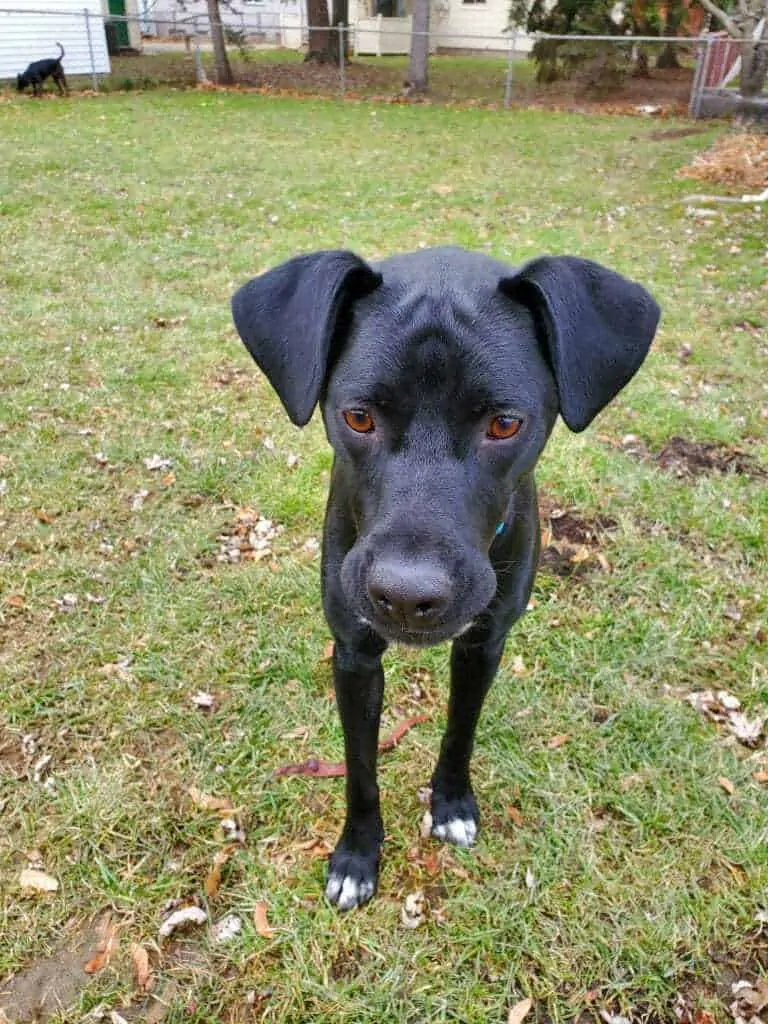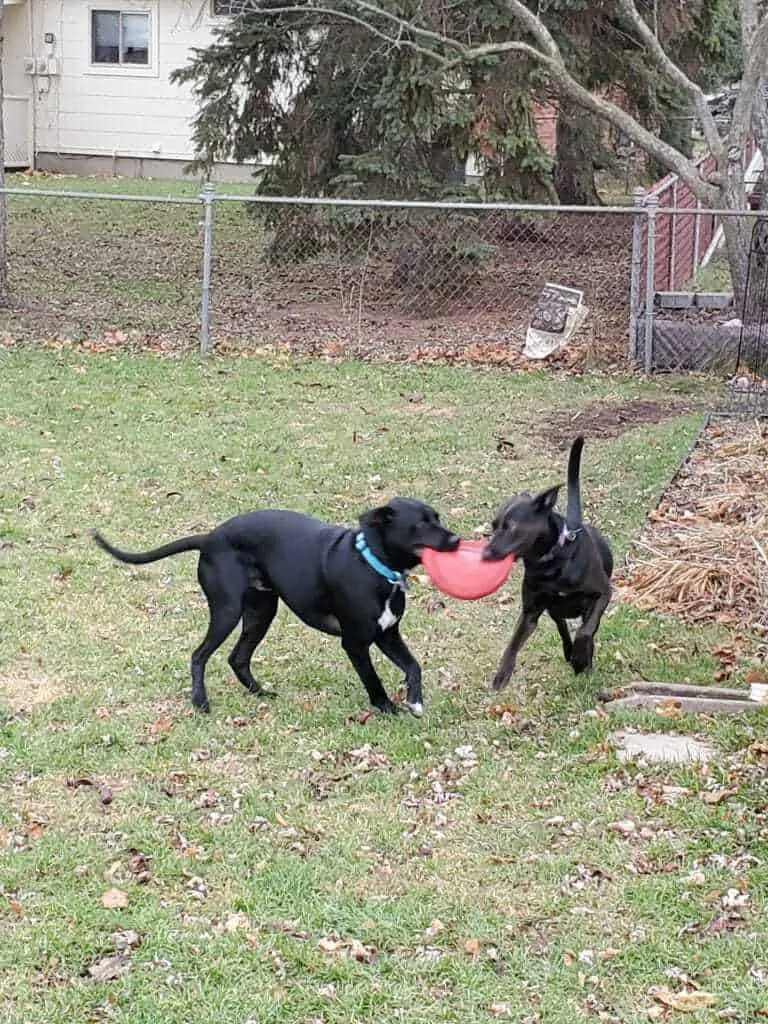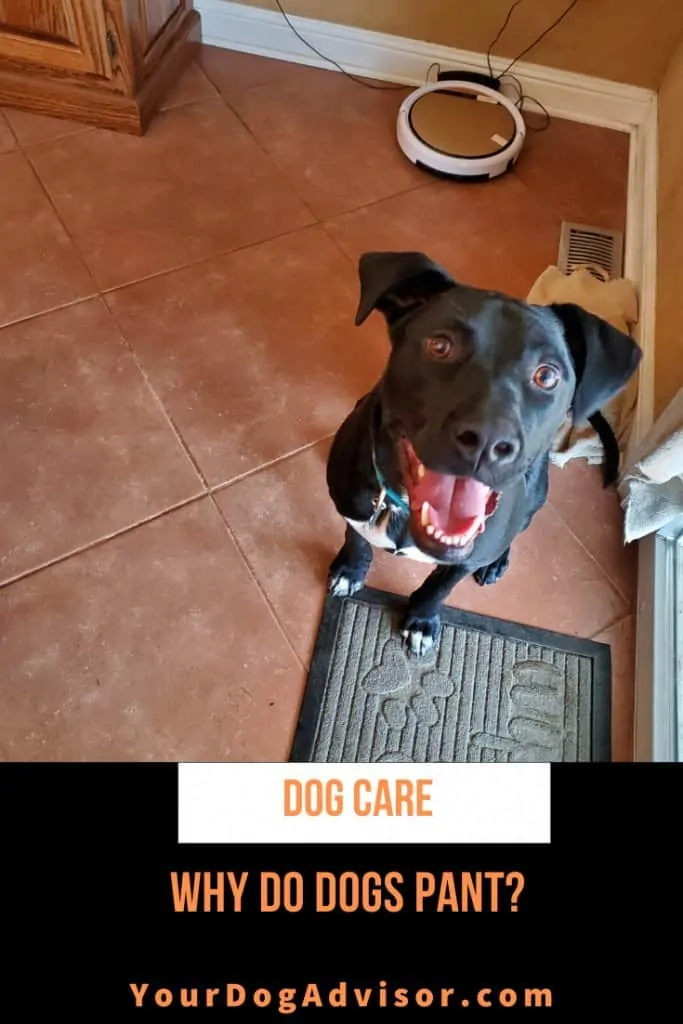No matter what part of the world you may be in, at some point, hotter temperatures have come across your path. Dogs often will “pant” during these warmer days, however, is it always normal for them to do so?
I am here to give you the breakdown on dog panting, what causes it, and other factors to look at when pondering; Why do Dogs Pant?
Contents
Normal Panting Vs Abnormal Panting
While panting can often be stated as “normal,” there are a few things to keep an eye on within the panting phases.
Normal Panting:
- To get rid of excess body heat: This is done by the evaporation of water across the body. Examples would include the lungs, and within the mouth.
- Cooling of the glands: Dogs have glands within their paws/feet, and near their ears. Panting helps cool these glands.
Abnormal Panting
- Excessive panting to what you are used to: This is generally noticed by the owner. If your dog is panting way more than you have ever seen, you may want to contact your vet asap.
- Raspier or louder pants: Not only heavier pants, but abnormal raspy like pants can be a cause for concern.
- More exertion or energy than norma: If you noticed your dog has used more energy during pants than you think should be used, this could be a problem.
Breeds that Pant more
While all dogs pant, there are a few dogs that tend to pant more than normal:
- Pugs and Bulldogs: Because of their pushed in faces, it often is common to see them struggle more with panting
- Boxers: Having a boxer in our family, I will let you know that they breathe much heavier than your average dog. Simple catch, or walks in higher heat days will cause them to pant more. As an owner of one, I will tell you you must hydrate them a lot more, and keep an eye on their hearts and deep breathing.
Boxers tend to pant more
While we know primarily that Normal panting is part of an everyday dog’s life, those abnormal pants may not be easily detected and understood. Here is a list of some reasons for abnormal panting.
Pain
Plain and simple, excessive panting can mean your dog is in pain. If your dog has discomfort to a certain level, they will most likely show it well in advance. They may whine more, show signs of limping, or may just be depressed while still panting.
Some of the most common “pain” related items that may be non-visible in your dog include:
- Arthritis
- Muscle pulls
- Stomach Virus
- Heart Issues
These items cannot be seen by the normal eye, and can all cause your dog severe pain, and could even result in death. Regular check ups and calls to your vet will help your dog’s troubles and panting issues.
Stress or Fear
I have discussed previously about my dog Sadie, a Borador. While she doesn’t show the “behavioral panting,” she has shown may of these symptoms when scared.
- Odd Yawning: I call it “odd yawning” because dogs do tend to yawn from time to time, and it is not always abnormal. Look for signs of excessive yawning, and panting more, and if they are present, consult a vet to see their recommendations.
- Tucked away tail: This is the number one factor of nervousness in my mind. Scared dogs will tuck their tails instantly, and if panting is present during this as well, something is stressing them out. Look around your house, and think about the situations that may be causing this stress. (Yelling, rushed humans throughout the house, etc) If the behavior can be fixed, it may help your dog avoid this behavior.
- Flattened Ears: Another scare reaction from dogs. Like stated above, figure out the situation, and ensure your dog it will be okay.
- Whining: Abnormal whining and deep panting can revert back to something is wrong behavior wise, or physical wise. Keep an eye out for this, and react appropriately.
- Abnormal Clingy behavior: While clingy behavior is often present in a lot of dogs, you tend to get an idea of how close your dog usually is to you. If panting and an odd amount of clingy behavior is present, consult your vet for recommendations.
Not all pains are easily visible in dogs
More Causes and Risks
Just a few other reasons why a Dog may pant include:
- Excessive workout: When you walk your dog, give them excessive workouts by playing catch for long periods of time, or they battle their dog siblings, they will often pant.
- Heatstroke: When it is extremely hot outside, you have to keep an eye on your dog. When dogs are outside for long periods of time in heat, which is not recommended, they take the risk of getting heavy panting and possibly heat stroke.
Some more of the heavy risks of deep panting can be very scary for your dog and you.
Heart Failure
Just like a human, when the heat isn’t pumping the correct blood throughout the body, the dog tissue will not be provided enough oxygen. This will often affect the breathing and respiratory tracts, and will often cause your dog to pant.
Lung Disease
Another possibility in dogs, they may begin to breathe faster, and pant, as their oxygen could be deprived. Lungs need oxygen to move to the bloodstream in order to keep strong, and when this does not happen, it could be a sign of possible lung disease.
Anemia
This has to do with red blood cells. They are responsible for moving oxygen to the tissues, and thus, a decrease in red blood cells, or Anemia, would result in oxygen deprivation. Increased breathing and panting could be present with this issue as well.
Obesity
Obesity is a serious problem with several dogs. Owners sometimes get comfortable with their dogs, get lazy, or do not exercise their dogs enough. When a dog is overweight, panting and tongues sticking out will often be present.
Keeping dogs active avoids obesity
When To Get Worried
So when is it time to be concerned? How do I know that my dog is not doing normal panting? Here are a few things to call your vet on:
- Panting is from dog in pain: If you have any feelings that your dog is in pain, or you notice it within their facial features, your vet needs to be notified.
- Panting starts all of a sudden: Does your dog rarely pant? Have they started all of a sudden, and it seems to be out of nowhere? This may be a sign to contact your vet.
- Panting is heavier than it should be: Panting can be normal. However, if the panting seems excessive and deep consistently, this may be a cause for concern.
- Dog’s tongue is an odd color: Blue or whitish tongues can show signs that your dog is not getting the oxygen they need. This is not something that you should ever let go for long periods of time. Contact your vet immediately.
Overall, if you ever think anything is not normal in your dog, make sure you do not hesitate to contact your local vet. I hope this information about panting allowed you to better understand why it happens. Please feel free to post comments below!

Jen Jones is a professional dog trainer and behavior specialist with more than 25 years of experience. As the founder of ‘Your Dog Advisor’ and the ‘Canine Connection’ rehabilitation center, she applies a holistic, empathetic approach, aiming to address root causes rather than merely treating symptoms.
Well known for her intuitive and compassionate approach, Jen adopts scientifically-proven, reward-based methods, encouraging positive reinforcement over punishment. Jen specializes in obedience training, behavior modification, and puppy socialization. Her innovative methods, particularly in addressing anxiety and aggression issues, have been widely recognized. Jen has worked with many of the world’s leading dog behaviorists and in her free time volunteers with local animal shelters and rescue groups.



